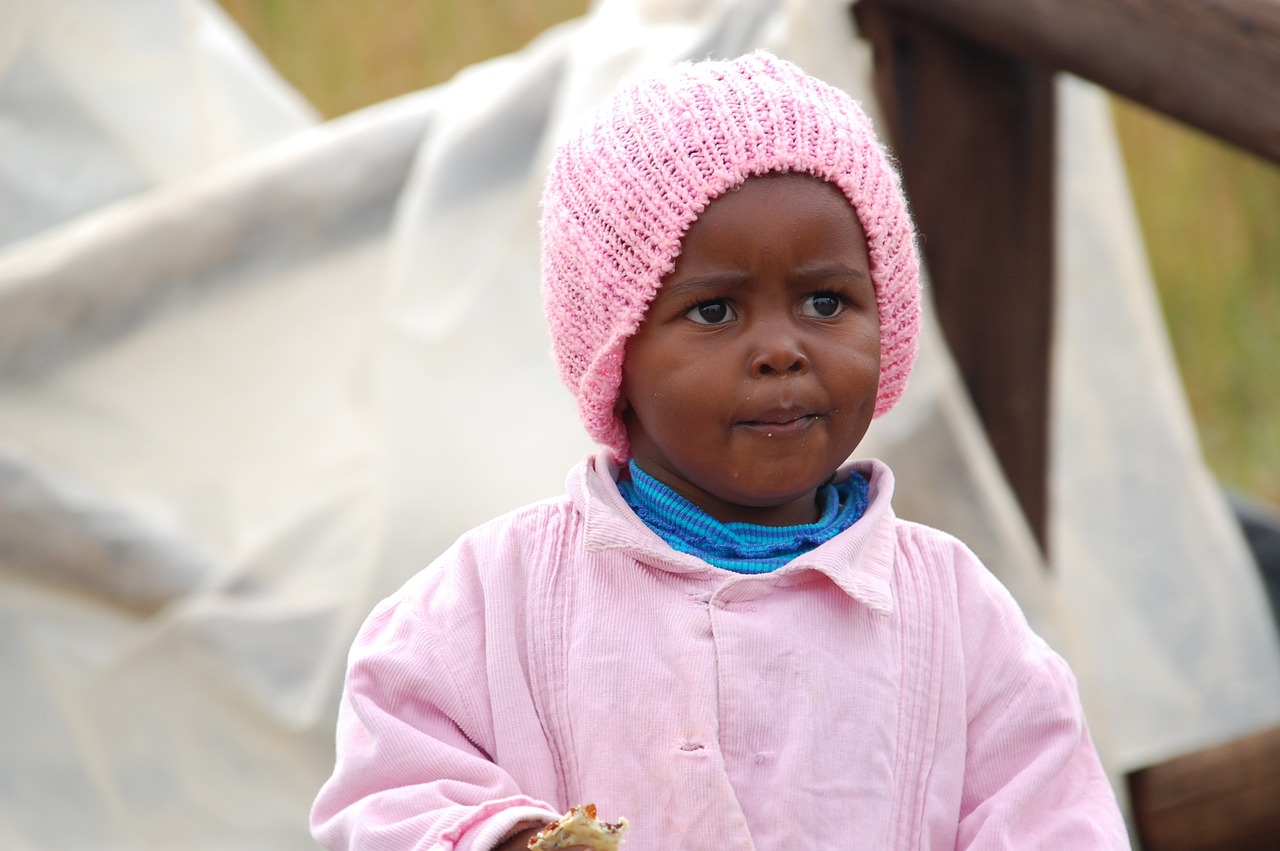South Africa Video
Retaining Productivity: Facing Common Challenges in South Africa
South Africa, known for its diverse culture, natural beauty, and economic potential, faces several challenges when it comes to retaining productivity. This article aims to explore and address some of the common challenges that individuals and organizations in South Africa encounter and provide insights on how to overcome them. By understanding these challenges and implementing effective strategies, South Africa can enhance productivity levels and drive sustainable growth.
Section 1: Education and Skills Gap
Education and skills development play a crucial role in enhancing productivity. However, South Africa faces a significant education and skills gap, which hinders progress and economic growth. Some key challenges in this area include:
- Limited access to quality education: Many individuals, particularly those in disadvantaged communities, lack access to quality education. This limits their opportunities for skill development and hampers their productivity potential.
- Inadequate skills alignment: There is often a mismatch between the skills possessed by job seekers and the skills demanded by employers. This disconnect leads to unemployment and underutilization of human capital.
- Insufficient investment in education: The education sector in South Africa requires increased investment to improve infrastructure, teacher training, and curriculum development. Without adequate resources, it becomes challenging to bridge the skills gap effectively.
To address these challenges, it is essential to prioritize education and skills development. This can be achieved through initiatives such as increasing access to quality education, promoting vocational training programs, and fostering partnerships between educational institutions and the private sector. By investing in education, South Africa can build a skilled workforce capable of driving productivity and innovation.
Section 2: Unemployment and Job Creation
Unemployment remains a pressing challenge in South Africa, with a significant portion of the population unable to secure stable employment. The following factors contribute to this issue:
- Economic downturn: Periods of economic recession or slow growth can result in reduced job opportunities and increased unemployment rates.
- Structural unemployment: Structural factors, such as a lack of diversification in the economy or technological advancements, can lead to job displacement and unemployment.
- Skills mismatch: As mentioned earlier, a skills mismatch between job seekers and available positions contributes to unemployment.
To combat unemployment and promote job creation, South Africa needs to focus on:
- Promoting entrepreneurship: Encouraging entrepreneurship can create new job opportunities and drive economic growth. This can be achieved through initiatives such as providing access to finance, mentorship programs, and simplified business registration processes.
- Investing in emerging industries: Identifying and investing in emerging industries can lead to job creation. For example, renewable energy, technology, and tourism sectors have the potential to generate employment opportunities.
- Enhancing labor market flexibility: Creating a flexible labor market can facilitate job creation by making it easier for businesses to hire and adapt to changing market conditions.
By addressing the challenges related to unemployment and job creation, South Africa can reduce poverty, inequality, and social unrest while driving economic growth.
Section 3: Infrastructure Development
Infrastructure development is vital for economic growth and productivity. However, South Africa faces several challenges in this area:
- Insufficient investment: Limited public and private investment in infrastructure development hampers progress and affects productivity in sectors such as transportation, energy, and communication.
- Outdated infrastructure: Some existing infrastructure is outdated and in need of modernization or expansion to meet the growing demands of businesses and the population.
- Regional disparities: There are significant disparities in infrastructure development between urban and rural areas, leading to unequal access to essential services.
To address these challenges, South Africa needs to prioritize infrastructure development by:
- Increasing investment: Allocating adequate financial resources to infrastructure projects can stimulate economic growth and enhance productivity.
- Public-private partnerships: Collaborating with the private sector can accelerate infrastructure development by leveraging expertise and resources.
- Improving maintenance and upgrading: Regular maintenance and upgrading of existing infrastructure are crucial to ensure optimal functionality and efficiency.
By investing in infrastructure development, South Africa can improve connectivity, reduce transportation costs, and create an enabling environment for businesses to thrive.
South Africa Image 1:

Section 4: Socioeconomic Inequality
Socioeconomic inequality poses a significant challenge to productivity and overall development in South Africa. Some key factors contributing to this challenge include:
- Historical legacies: The apartheid era has left a lasting impact on socioeconomic disparities, with certain racial and ethnic groups experiencing systemic disadvantages.
- High unemployment rates: Unemployment, particularly among marginalized communities, exacerbates inequality and limits upward mobility.
- Limited access to resources: Unequal distribution of resources, such as quality education, healthcare, and housing, perpetuates socioeconomic disparities.
To address socioeconomic inequality and promote inclusivity, South Africa should focus on:
- Equitable resource allocation: Ensuring equal access to essential resources and services can help bridge the gap between different socioeconomic groups.
- Social welfare programs: Implementing effective social welfare programs can provide support to vulnerable populations and help alleviate poverty.
- Empowerment through education and skills development: Providing quality education and skills training opportunities to marginalized communities can enhance their productivity and socioeconomic mobility.
By addressing the root causes of socioeconomic inequality, South Africa can create a more inclusive society that fosters productivity and shared prosperity.
Section 5: Health and Wellness
Health and wellness play a vital role in maintaining productivity levels among individuals and organizations. South Africa faces several health-related challenges that impact productivity, including:
- High disease burden: South Africa has a high prevalence of communicable and non-communicable diseases, which can lead to increased healthcare costs and reduced productivity.
- Healthcare accessibility: Limited access to quality healthcare services, particularly in rural areas, hampers productivity and well-being.
- Psychological well-being: Mental health issues, such as stress, anxiety, and depression, can significantly impact productivity and overall work performance.
To promote health and wellness and enhance productivity, South Africa should consider the following strategies:
- Investing in healthcare infrastructure: Improving healthcare infrastructure and expanding access to quality healthcare services can positively impact productivity.
- Health education and awareness: Promoting health education and awareness programs can empower individuals to make informed decisions about their well-being.
- Workplace wellness initiatives: Implementing wellness programs in workplaces can help address mental health issues and improve overall employee well-being.
By prioritizing health and wellness, South Africa can create a healthier workforce that is more productive and resilient.
South Africa Image 2:

Section 6: Corruption and Governance
Corruption and governance issues pose significant challenges to productivity and economic development in South Africa. Some key challenges include:
- Corruption: Corruption undermines trust, erodes public resources, and deters both local and foreign investment.
- Inefficient bureaucracy: Cumbersome administrative processes and red tape can hinder business operations and discourage productivity.
- Weak rule of law: Inadequate enforcement of laws and regulations contributes to a culture of non-compliance and undermines productivity.
To address corruption and governance challenges, South Africa should focus on:
- Strengthening anti-corruption measures: Implementing robust anti-corruption strategies, such as transparency initiatives and accountability mechanisms, can help curb corrupt practices.
- Streamlining bureaucratic processes: Simplifying administrative procedures and reducing red tape can enhance efficiency and promote productivity.
- Enhancing transparency and accountability: Promoting transparency in governance and strengthening accountability mechanisms can foster trust and promote good governance practices.
By addressing corruption and improving governance, South Africa can create a conducive environment for businesses, attract investments, and drive productivity.
Section 7: Energy and Power Supply
Reliable and affordable energy supply is crucial for productivity and economic growth. South Africa faces energy-related challenges, including:
- Electricity shortages: Insufficient power supply and frequent load shedding disrupt business operations and hinder productivity.
- Heavy reliance on fossil fuels: South Africa’s energy mix is heavily reliant on coal, which has negative environmental impacts and poses long-term sustainability challenges.
- Infrastructure limitations: Inadequate infrastructure for power generation and transmission affects the stability and reliability of the energy supply.
To address energy challenges and promote productivity, South Africa should consider the following strategies:
- Investing in renewable energy: Diversifying the energy mix by investing in renewable energy sources can reduce reliance on fossil fuels and promote sustainability.
- Improving infrastructure: Upgrading existing infrastructure and investing in new power generation facilities can enhance energy stability and reliability.
- Energy efficiency initiatives: Encouraging energy-efficient practices in industries and households can reduce energy consumption and lower costs.
By addressing energy challenges and transitioning to a more sustainable energy system, South Africa can ensure a reliable power supply that fuels productivity.
Section 8: Crime and Security
Crime and security concerns can have a significant impact on productivity and economic development in South Africa. Some key challenges include:
- High crime rates: South Africa has relatively high crime rates, including violent crimes and property-related offenses, which affect personal safety and business operations.
- Perception of insecurity: The perception of insecurity can deter investment and tourism, impacting economic growth and productivity.
- Organized crime: Organized criminal activities, such as drug trafficking and corruption, undermine the rule of law and hinder productivity.
To address crime and security challenges, South Africa should focus on:
- Improving law enforcement: Strengthening law enforcement agencies and enhancing their capabilities can deter criminal activities and improve security.
- Community engagement: Encouraging community participation in crime prevention initiatives can foster a sense of ownership and promote safer neighborhoods.
- Investing in social development: Addressing the root causes of crime, such as poverty and inequality, through social development programs can contribute to long-term crime reduction.
By prioritizing crime prevention and improving security, South Africa can create a safer environment that promotes productivity and attracts investment.
Section 9: Environmental Sustainability
Environmental sustainability is crucial for long-term productivity and the well-being of South Africa’s people and ecosystems. Some key environmental challenges include:
- Climate change impacts: South Africa is vulnerable to the impacts of climate change, including droughts, floods, and extreme weather events, which can disrupt economic activities.
- Natural resource depletion: Unsustainable use of natural resources, such as water and land, can compromise their availability and impact productivity.
- Pollution and waste management: Inadequate waste management practices and pollution contribute to environmental degradation and affect human health and well-being.
To address environmental challenges and promote sustainability, South Africa should consider the following strategies:
- Adopting sustainable practices: Encouraging businesses and individuals to adopt sustainable practices, such as energy efficiency, waste reduction, and responsible resource use, can mitigate environmental impacts.
- Investing in renewable energy: Transitioning to renewable energy sources can reduce greenhouse gas emissions and contribute to mitigating climate change.
- Protecting ecosystems: Preserving and restoring natural ecosystems, such as forests and wetlands, can enhance biodiversity and contribute to environmental sustainability.
By prioritizing environmental sustainability, South Africa can protect its natural resources, mitigate climate change impacts, and foster a sustainable and productive future.
South Africa Image 3:

Section 10: Access to Finance
Access to finance is essential for individuals and businesses to invest, grow, and drive productivity. South Africa faces challenges in this regard, including:
- Limited access to credit: Many individuals and small businesses struggle to access affordable credit, hindering their ability to invest and expand.
- High interest rates: High borrowing costs can discourage investment and limit access to finance for productive activities.
- Financial exclusion: Certain marginalized communities, particularly those in rural areas, may face barriers in accessing formal financial services.
To promote access to finance and enhance productivity, South Africa should consider the following strategies:
- Financial inclusion initiatives: Implementing policies and programs that promote financial inclusion can help individuals and businesses access formal financial services.
- Support for small and medium enterprises (SMEs): Providing targeted financial support, such as grants, loans, and capacity-building programs, can empower SMEs to grow and contribute to productivity.
- Reducing regulatory barriers: Streamlining regulations and reducing bureaucratic hurdles can facilitate access to finance and encourage investment.
By improving access to finance, South Africa can unlock the potential of individuals and businesses, driving productivity and economic growth.
Section 11: Social Cohesion and Diversity
Social cohesion and embracing diversity are essential for fostering a productive and inclusive society. South Africa faces challenges related to social cohesion, including:
- Historical divisions: Historical divisions, such as those stemming from apartheid, can impact social cohesion and hinder collaboration and productivity.
- Prejudice and discrimination: Prejudice and discrimination based on race, ethnicity, gender, or other factors can undermine social cohesion and limit individuals’ contributions.
- Lack of inclusive policies: Inadequate policies and practices that promote inclusivity can perpetuate social divisions and hinder productivity.
To promote social cohesion and diversity, South Africa should focus on:
- Promoting inclusive policies: Implementing policies that promote equal opportunities, diversity, and inclusion can foster social cohesion and enhance productivity.
- Addressing discrimination: Tackling prejudice and discrimination through awareness campaigns, education, and legal frameworks can create a more inclusive society.
- Building social capital: Encouraging community participation, dialogue, and collaboration can strengthen social bonds and contribute to social cohesion.
By promoting social cohesion and embracing diversity, South Africa can harness the potential of all its citizens and foster a productive and harmonious society.
Section 12: Conclusion
In conclusion, South Africa faces various challenges that impact productivity and hinder sustainable development. From education and skills development to unemployment, infrastructure, inequality, health, corruption, energy, crime, environment, finance, and social cohesion, these challenges require comprehensive strategies and collective efforts to overcome.
By addressing these challenges and implementing effective solutions, South Africa can unlock its full productivity potential, drive economic growth, and create a more inclusive and prosperous society. It is crucial for government, businesses, civil society, and individuals to collaborate and prioritize actions that promote productivity, innovation, and sustainable development.
References:
– Department of Basic Education: www.education.gov.za
– Statistics South Africa: www.statssa.gov.za
– South African Government: www.gov.za
– World Bank: www.worldbank.org
– International Labour Organization: www.ilo.org
– Department of Trade, Industry and Competition: www.thedtic.gov.za
– South African National Energy Development Institute: www.sanedi.org.za
– South African Police Service: www.saps.gov.za
– South African Reserve Bank: www.resbank.co.za
– Department of Environmental Affairs: www.environment.gov.za


